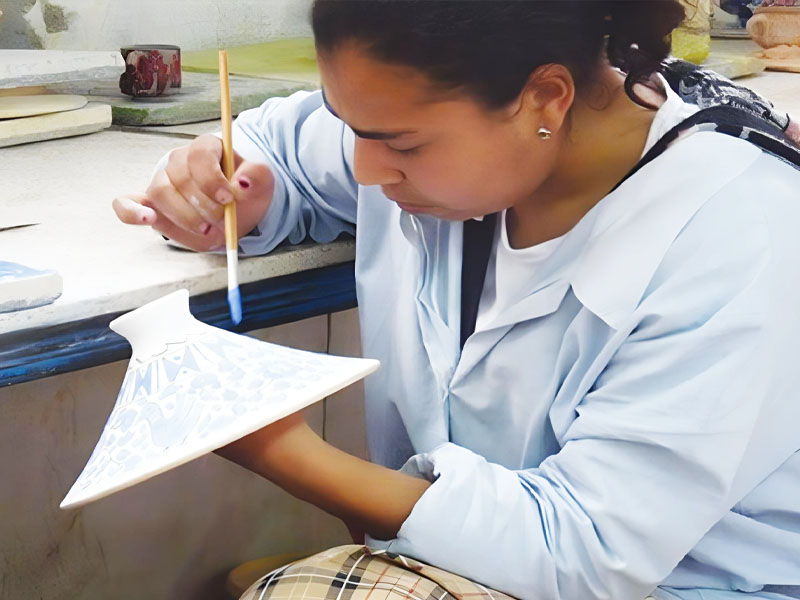Traditional crafts from a gender perspective
Issue 45

By Youssef Bouataoun
This study reveals the importance of gender equality in studying traditional crafts. The study approaches the issue from a socio-anthropological perspective. It also attempts to monitor the various obstacles that hinder the empowerment of craftswomen and prevent them from developing traditional crafts in Morocco and achieving independence.
The study found that women contribute to male-dominated crafts due to three basic factors: the economic factor, which is related to poverty, lack of job opportunities and high costs of living; some women want to change the stereotypical and traditional perceptions of women's roles, their work and their ability to work efficiently; and socio-economic changes and the effects of globalisation, which have led to the introduction of modern techniques and tools in manufacturing and production and contributed to women’s increasing participation in trades that previously required significant physical effort.
The study also touched on parents and male artisans’ comments and perceptions of women’s work, which constitute the biggest challenge, and on other social and cultural difficulties that the women with whom we conducted field interviews face in the workplace.
Beliefs and traditions that support discrimination on the basis of gender make it difficult to establish a balance between craftwork and housework. The latter poses the greatest challenge and obstacle for women who wish to achieve professional excellence and to highlight their role in traditional crafts.
In order to change the stereotypes that prevent women's emancipation and equality in terms of the distribution of roles, the study recommends that we challenge traditional roles and increase the number of women in male-dominated occupations. Craftswomen should know that they play an effective and important role in the traditional crafts sector.







































































